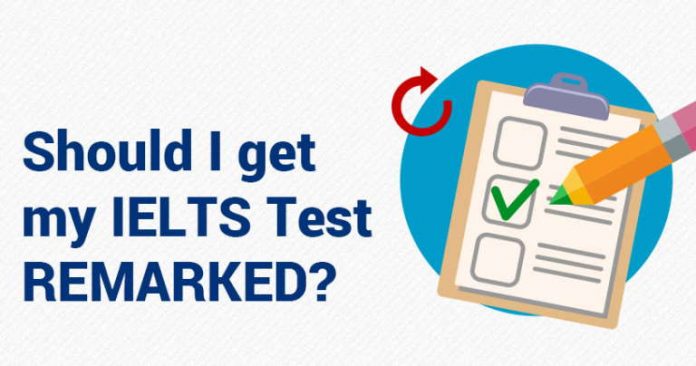
The students who fail to score their expected band score are often in a dilemma of whether they should get their IELTS test remarked or not. Official guidance from British council or IDP, in this sector is almost nil. Here are some key facts about IELTS re-evaluation:
OFFICIAL FACTS:
- Getting your test remarked is officially termed as Enquiry on Results.
- You can apply at your local test center within 6 weeks of your actual result.
- Your test is then been send to a senior examiner in Cambridge or Melbourne. The examiner is not told your actual score.
- If you are not satisfied with just one skill, you can get it remarked individually.
- If your re-evaluated scores differ from your original scores, your fee will be refunded.
- The complete process is been carried out in almost 7 weeks.
- Meanwhile, you are not allowed to use your original certificate.
There are not any official statistics published on the success of the process. But there are some advises on whether you should get your IELTS test remarked or not:
Situations under which you should get your IELTS test re-evaluated:
1If you have regularly scored higher in the practice tests assessed by experienced IELTS teacher
During your practice tests (conducted under exam conditions), if you have consistently scored higher and the teacher evaluating your score is an experienced IELTS teacher then getting the enquiry on results done is probably a good idea. But make sure that the teacher knows the criteria of assessing.
2In the past tests your scores were notably higher
If there is a difference of a whole band between your current result and your past results, then you should get re-evaluation done, provided you’ve taken the last test recently.
3You have full confidence of your answers being correct
If you are cent percent sure of your answers and believe that you were fully prepared, ten you can apply for remark. However, if you don’t have knowledge of the test and criteria of assessment from a reliable source, then you should probably think again. Many students are often misinformed, and they think they’ve done the paper quite well. Hence, first try to be very sure.
4You scored two bands higher in other skills
If you got band 7 in both writing and reading, band 7.5 in listening and a band 5 in speaking, already a re-assessment has been done in the local test centre. Hence, you need not apply for getting a remark again.
5You had trouble understanding the question in the writing section
If you faced trouble while performing the writing task but you still managed to write a considerable essay, then you might have not answered the question correctly.
6You weren’t able to do the task in required word limit or you couldn’t reach the word limit
If either of them is true, then you must have lost marks.
7Your score in all the tests you’ve taken are constant
If you have scored a constant band in all the recent tests then it’s likely that your level of English is not up to the mark.
8If you have scored less than your friend or kin
This is a very common reason for many students to apply for remark. If your friend/relative/ kin scored higher than you, probably their English is better than yours.
9There’s a difference of more than half a band in your expected and actual result
Mistakes are likely to be made by examiners sometimes. But a difference of more than half a band is very rare.
10You want to get your reading and listening module remarked
There is no scope in these two sections as the answers are either right or wrong.
If time and money permits, a better solution is to take to the test more than once, provided you are not completely sure. Difference in scores can be contributed by many factors viz.
- How you performed on the test day.
- How suitable the topics you got for writing section were for you.
- How well did you prepare this time.
Hence, it is better to learn from your experience and prepare for another test.
Originally posted 2018-03-27 19:39:36.










